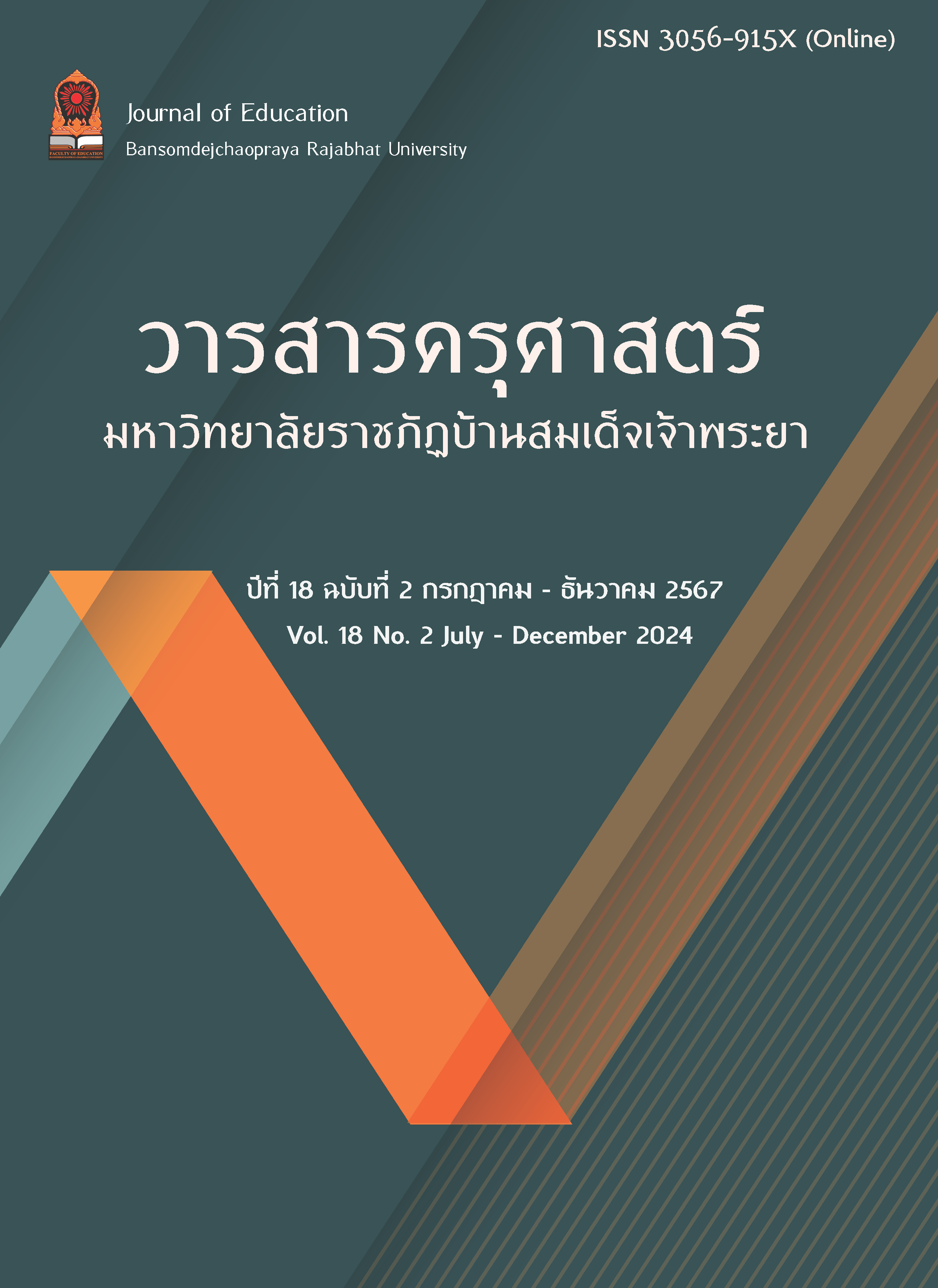Public Education Policy for Sustainable Development: Implementing the SDG Goals in Practice.
Keywords:
Public policy, education, sustainable development, Sustainable Development Goals , Quality EducationAbstract
The Sustainable Development Goals (SDGs), introduced by the United Nations in 2015, provide a comprehensive framework for promoting sustainable development that integrates economic, social, and environmental dimensions. Among the 17 goals, SDG 4 focuses on ensuring inclusive and equitable quality education. Achieving this goal requires strategic actions, including the formulation of public policies, the adoption of education for sustainable development principles, and the integration of policies into practical implementation. Efforts to advance SDG 4 aim to reduce disparities in access to education, particularly for vulnerable groups such as persons with disabilities, indigenous people, and children, ensuring equal opportunities at all levels by 2030. Public education policies, such as the 12-year Free Education Program, emphasize reducing inequality and enhancing the quality of education through teacher development and safe learning environments. The operational framework for implementing SDG 4 consists of six steps: identifying challenges, establishing public policies, aligning them with the SDG 4 targets, setting measurable indicators, formulating actionable strategies, and assigning clear responsibilities at both the policy and operational levels. This integrated approach underscores the importance of inclusive education as a cornerstone of sustainable development, aiming to leave no one behind while fostering equity and quality in education systems.
Downloads
References
กระทรวงศึกษาธิการ. (2564). รายงานการศึกษาด้านการศึกษาของประเทศไทย: การศึกษาเพื่อความยั่งยืน.
ณรงค์ฤทธิ์ สัมพันธ์วงศ์. (2563). การพัฒนาทักษะการคิดวิเคราะห์ในศตวรรษที่ 21: ความสำคัญและการบูรณาการในหลักสูตรการศึกษา. วารสารการศึกษาและพัฒนา.
สำนักงานเลขาธิการสภาการศึกษา. (2565). การพัฒนาการศึกษาของประเทศไทย. สำนักพิมพ์การศึกษา.
สำนักงานคณะกรรมการกฤษฎีกา. (2560). รัฐธรรมนูญแห่งราชอาณาจักรไทย พ.ศ. 2560.
สำนักงานคณะกรรมการพัฒนาการเศรษฐกิจและสังคมแห่งชาติ. (2018). แผนยุทธศาสตร์ชาติระยะ 20 ปี (พ.ศ. 2561 - 2580).
สำนักงานคณะกรรมการพัฒนาการเศรษฐกิจและสังคมแห่งชาติ. (2022). แผนพัฒนาเศรษฐกิจและสังคมแห่งชาติ ฉบับที่ 13 (พ.ศ. 2566 - 2570).
สำนักงานสภานโยบายการอุดมศึกษา วิทยาศาสตร์วิจัยและนวัตกรรมแห่งชาติ (สอวช.). (2564). SDGs คืออะไรมารู้จัก 5 เป้าหมายแรกจากมิติสังคม. เอกสารอิเล็กโทรนิกส์.
สุภาวดี ศิริโยธา. (2564). การพัฒนาระบบการเรียนการสอนออนไลน์ในประเทศไทย: แนวทางและความท้าทาย. วารสารการศึกษาและการพัฒนา.
Anderson, J. E. (2021). Public Policymaking. Cengage Learning.
Bauman, Z. (2021). Education in the Age of Uncertainty: A New Approach to Lifelong Learning. Routledge.
Council of Ministers of Education. (2010). Backgroud – Developing a Pan-Canadian ESD Framework for Collaboration and Action. Ontario: CMEC.
Chisholm, L., & Leyendecker, R. (2019). Education and sustainable development: Achieving the sustainable development goals through education. International Journal of Educational Development, 65, 135-145.
Global Education Monitoring Report. (2021). Global education monitoring report 2021: 2022 edition. UNESCO.
Huang, J. (2020). The impact of education on economic growth: An analysis of developing countries. Journal of Economic Development, 45(3), 1-25.
International Panel on Climate Change (IPCC). (2021). Climate change 2021: The physical science basis.
Mazzucato, M. (2018). Mission economy: A moonshot guide to changing capitalism. The Penguin Press.
McCowan, T. (2022). Education, Development, and the Sustainable Development Goals: A Global Perspective. Routledge.
Organisation for Economic Co-operation and Development (OECD). (2019). Trends shaping education 2019. OECD Publishing
Ostrom, E. (2019). Governing the commons: The evolution of institutions for collective action. Cambridge University Press.
Porter, M. E. (2019). Creating shared value: Competitive advantage through social impact. Harvard Business Review.
Reimers, F. & Schleicher, A. (2020). Education in a crisis: The impact of COVID-19 on education systems around the world. OECD.
Rockström, J., Steffen, W., Noone, K., Persson, Å., Chapin, F. S., Lambin, E. F., ... & Foley, J. A. (2009). A safe operating space for humanity. Nature, 461(7263), 472-475
Raworth, K. (2017). Doughnut economics: Seven ways to think like a 21st-century economist. Chelsea Green Publishing.
Sachs, J. D. (2019). The age of sustainable development. Columbia University Press.
Sachs, J. D. (2020). The Age of Sustainable Development. Columbia University Press.
Sen, Amartya (2000). Development as freedom. Anchor Books.
Sterling, S. (2020). Sustainability Education: Perspectives and Practice Across Higher Education. Earthscan.
The National Economic and Social Development Board. (2017). The National Strategy (2017-2036). Bangkok: The Secretariat of the Prime Minister. (In Thai)
Tilbury, D. (2011). Education for sustainable development: An overview. International Journal of Sustainability in Higher Education, 12(2), 140-153.
UNESCO Institute for Lifelong Learning. (2022). Lifelong learning and education for sustainable development. UNESCO.
UNESCO. (2020). Education and COVID-19: The impact of the pandemic on education systems. UNESCO.
UNESCO. (2020). Education for sustainable development: A global perspective.
UNESCO. (2021). Education for sustainable development: Towards achieving the sustainable development goals. UNESCO.
UNESCO. (2021). The state of the world’s biodiversity for food and agriculture 2021.
UNESCO. (2022). Global education monitoring report 2022: 2023 edition. UNESCO.
United Nations. (2015). Transforming our world: The 2030 agenda for sustainable development.
United Nations. (2020).The sustainable development goals report 2020. https://unstats.un.org/SDG/report/2020/
Waldron, J., Stokes, R., & Davidson, J. (2021). Preparing students for the future: The importance of education for sustainable development. Journal of Environmental Education, 52(3), 215-229.
Wals, A. E. J. (2018). Sustainability in higher education: From the imperative to the action. Higher Education Policy, 31(1), 97-110.
World Health Organization (WHO). (2021). World health statistics 2021: Monitoring health for the SDG.
World Resources Institute. (2020). Sustainable energy for all: The role of energy access in achieving the SDG.
Downloads
Published
How to Cite
Issue
Section
License
Copyright (c) 2024 Faculty of Educaion Bansomdejchaopraya Rajabhat University

This work is licensed under a Creative Commons Attribution-NonCommercial-NoDerivatives 4.0 International License.
บทความที่ได้รับการตีพิมพ์เป็นลิขสิทธิ์ของคณะครุศาสตร์ มหาวิทยาลัยราชภัฏบ้านสมเด็จเจ้าพระยา
ข้อความที่ปรากฏในบทความแต่ละเรื่องในวารสารวิชาการเล่มนี้เป็นความคิดเห็นส่วนตัวของผู้เขียนแต่ละท่านไม่เกี่ยวข้องกับมหาวิทยาลัยราชภัฏบ้านสมเด็จเจ้าพระยา และคณาจารย์ท่านอื่นๆในมหาวิทยาลัยฯ แต่อย่างใด ความรับผิดชอบองค์ประกอบทั้งหมดของบทความแต่ละเรื่องเป็นของผู้เขียนแต่ละท่าน หากมีความผิดพลาดใดๆ ผู้เขียนแต่ละท่านจะรับผิดชอบบทความของตนเอง


